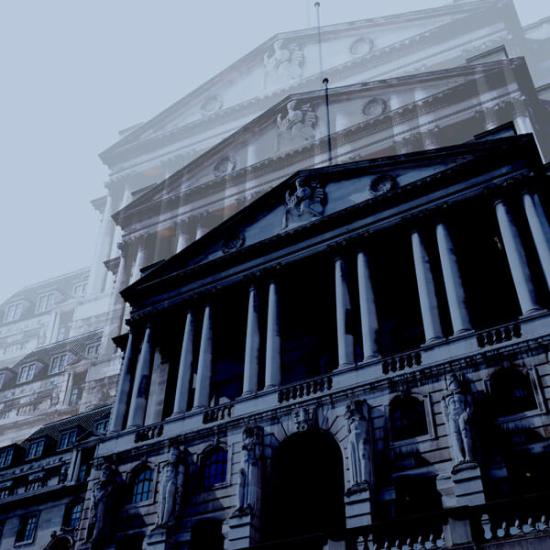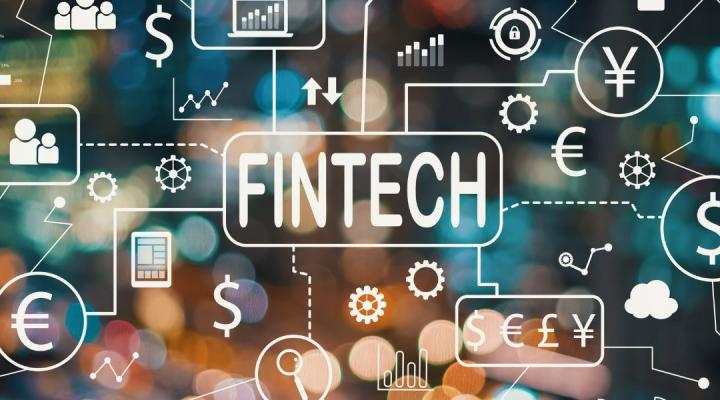How should CFOs react to the success of dogecoin – the bitcoin clone set up as a joke by two software engineers in 2013, but which at its peak, in May 2021, was worth more than the Ford Motor Company or the GDP of Sri Lanka? Or the meteoric rise of non-fungible tokens (NFTs), which saw a digital-only collage by artist Beeple sell for nearly $70 million (£50m) at Christie’s despite being an artwork anybody could save to their hard drive with a right click. Or how a mob of Reddit chancers clubbed together to buy shares in GameStop, toppling hedge funds that hoped to profit from the video-game retailer’s collapse?

If digital currencies represent the future of finance, then 2021’s crypto hijinks predict an anarchic, if not farcical, time ahead for the way businesses think about money.
It’s easy to laugh, but future historians could pinpoint 2021 as the year when cryptocurrencies went mainstream. News headlines abounded with reports of bitcoin surging to record highs (it peaked at $68,000 in November), companies such as Starbucks, Lush and WeWork accepted cryptocurrency as payment, the cryptocurrency exchange Coinbase debuted on Nasdaq and was subsequently valued at $86 billion and the city of Miami pitched itself as the world’s crypto capital.
But the 2021 highs came crashing back to earth in 2022 with headlines of bitcoin shedding 50% of its value since November. So where does this leave businesses and their CFOs? Are digital currencies a speculative bubble they can afford to ignore? Should they dive right in to avoid becoming crypto-paupers? Or do they dip their toes in and take the long view.
For Martin Schmalz, Professor of Finance and Economics, digital currencies are a boon for businesses in many ways: transactions cut out the ‘middlemen’ and they are private.
‘There are plenty of businesses that like to have their payments pseudonymous and hidden – they can make payments without governments knowing,’ says Martin. Yet, as much as stateless money excites techno-libertarians, its illicit nature is hard to ignore (‘maybe some of these pseudonymous payments are legal,’ says Martin, perhaps jokingly).
And for that very reason the digital currency evolution is very much a story of a tug of war between the creators and the regulators.
Join the crypto club
One way that companies could make money from crypto is by minting their own currency, so they avoid all the hefty transaction fees imposed by banks and credit card companies. But as Meta's recent failed experience with Diem shows policy makers are very opposed to such a concentration of economic power in any one company.

Equally, even if it got past the regulators, Martin believes ‘Amazon dollars’ would be a bit of a non-starter (‘we already have something not too dissimilar: it’s called Amazon gift cards’), but it may work for luxury brands. One business model advanced by tech commentator Scott Galloway is that the likes of Chanel and Hermès could significantly monetise their brands by issuing a million cryp-tocoins for $10,000 apiece. These coins would grant custodians exclusive access to products, Paris fashion shows and a professional stylist.
‘This idea makes sense because people want to be members of clubs, even if it doesn’t make financial sense [for consumers],’ says Martin. ‘If you could create a social movement around Gucci coins, then great. It’s not reinventing the wheel, but [given] much of the enthusiasm for cryptocurrencies is to do with being a member of a club, it could work.’
This ‘members’ club’ exclusivity has recently been glimpsed with the rise of de-centralised autonomous organisations (DAOs): essentially groups of investors and artists who meet in chatroom servers, occasionally minting their own currencies. For instance, to join the exclusive DAO, called Friends with Benefits, you could buy 75 friends with benefits dollars, or ‘75$FWBs’ to have access to a private chatroom on Discord (to natter about NFTs) and attend secret parties in Miami and New York.
If you’re a Nigerian farmer and inflation is very high, investing your money in a US dollar stablecoin could be a more attractive way to save
Central digital banks?
Authorities are wary about people gravitating towards cryptocurrencies, fearing they might undermine the stability of high-street banks. But as the world increasingly edges towards a cashless society, many national governments are already researching and piloting their own digital currencies, which would be centralised so officials could freeze accounts or block money-laundering. China is trialling the digital yuan while here in Britain the Chancellor Rishi Sunak opened a consultation on a Bank of England digital currency (inevitably dubbed ‘Britcoin’), which may launch later this decade.
This doesn’t mean that dollars, euros, pounds or dinar risk being dethroned anytime soon, says Martin. 'Can you really see national tax authorities like the IRS or HMRC accepting bitcoin instead of dollars and pounds to calculate the taxes you owe?’ he says. ‘We’re very far away from any developed country accepting and getting rid of their national currency for a cryptocurrency. It might work in a developing nation though… If you’re a northern Nigerian farmer and inflation is 15% a year, putting money into a US dollar stablecoin is potentially a more attractive way to save than in naira.’
In El Salvador, they’ve already taken that gamble. In September the Central American country became the world's first to accept bitcoin as legal tender. Each Salvadoran receives a local wallet called Chivo, with an initial balance of $30-worth of bitcoin. In a country where 70% of people don't use banks, it's hoped the experiment will increase foreign investment (foreigners investing three bitcoins in El Salvador will be granted residency), create a circular economy and make it easier for expat Salvadorans to send home the remittances that form a large chunk of the national economy. But it has been a bumpy ride so far with reports of failed transactions and identity fraud.
Cryptocurrencies could also take off in countries that suffer sudden bursts of inflation: when the Turkish lira slumped in 2021, it sparked a cryptocurrency trading frenzy with investors hoping bitcoin could protect the value of their savings.
It’s a scenario many banks fear. In October 2021, the Bank of England warned that should cryptocurrencies become too powerful, it may result in financial meltdown, especially if consumers started withdrawing their deposits to move them into digital currencies instead.
'I don't see that happening in the foreseeable future,’ says Martin. ‘Would you withdraw all your savings? How would you pay for groceries and tax bills? I don't see anybody doing that, much less so everybody.’
Enter the regulator
Still, there have been calls for greater supervision of cryptocurrencies, both from national governments and the IMF, who recently warned that cybercrime, funding of terrorism and the drugs trade are likely to increase if they remain unregulated.
Fraud is one concern: the decentralised networks of digital currencies could make it easy for dishonest owners, staff or directors to conceal cash from officials if their businesses go bust.

There has also been a rise in ransomware, with financial felons hacking businesses and demanding payment in crypto, possibly because there’s no paper trail for police to investigate (in June 2021, the world’s biggest meat producer JBS paid $11 million, reportedly in bitcoin, to Russian-speaking hackers).
Meanwhile, the dangers of the public dabbling in cryptocurrency without consumer protection was highlighted in November 2021 when a fraudulent ‘meme cryptocurrency’ inspired by Korean dystopian drama Squid Game soared more than 310,000% in value, before collapsing, netting the scamsters an estimated $2.1 million.
As the impact of recent interest rate rises have shown if a government wants to kill this market, the first thing they should do is increase interest rates
But what would regulation of the sector look like? In many countries, it’s been stringent. In November, India announced it would ban private cryptocurrencies (Prime Minister Narendra Modi warned that, in the wrong hands, they could ‘spoil our youth’) and said it would launch its own national digital currency. South Korea has seized millions of dollars of crypto-assets from citizens, while Egypt, Nigeria and Ghana have conducted similar clampdowns.
‘I think there’ll be more regulation,’ says Martin. The wait for this could explain why so many mainstream businesses have been reluctant to embrace crypto-currency, perhaps fearing they’d lose money if they become illegal. There could be a simpler solution to curb their power, says Martin: ‘As the impact of recent interest rate rises have shown if a government wants to kill this market, the first thing they should do is increase interest rates: it could cause a great deal of harm to the entire industry and those that have invested there. I’d be curious to see how the cryptocurrency market would survive it’.
Crypto and carbon
Another concern about cryptocurrencies is their environmental impact. Bitcoin mining – the process where high-powered computers, usually at data centres, consume vast amounts of electricity to solve complex algorithms – has a carbon footprint to rival Finland or Chile.
A 'depressing consequence’ of bitcoin mining is that it makes the currency safer, says Martin: ‘The thing that prevents people from attacking the blockchain is that their electricity bill would be so high, it wouldn’t be worth it.’ The high energy costs could even thwart the development of cryptocurrencies. ‘The economic potential of the use of this technology is precisely limited by its energy usage,’ adds Martin.

By dint of their acronym-heavy impenetrability, cryptocurrencies are a recondite, exclusive beast. As such, they could widen inequality between the financially literate and those who don’t understand them. As Martin says: ‘Many cryptocurrency funds are in the hands of very few people; most bitcoins are in a handful of accounts. This could lead to inequality.’
Cryptocurrencies might become an aspect of daily life disrupting traditional fi-nance (and making an elite few very rich) or they could crash due to tighter regulation or rising interest rates. Or they could remain as they are – operating mostly underground but providing a source of mildly amusing stories about NFT artworks or dogecoin.
‘People talk about how crypto will replace the financial system – so far, we haven’t seen any of that,’ says Martin. ‘But it’s certainly a powerful narrative that draws people in. If Elon Musk tweets that Tesla will accept bitcoin as a method of payment for its cars, that’s a great marketing move that gets loads of attention – but that’s it: there’s no innovation there at all.
‘Crypto has more to do with religion than economics. If you tell people there’s a bearded man sitting on a cloud and that if you don’t give money to the church he’ll be mad at you, it creates a social movement that works well in terms of generating revenue. Crypto is the same in some respects. The narrative that it’s a trust-free system that will replace the financial system doesn’t make sense when you take it literally, but it is nevertheless effective’.
Professor Martin Schmalz is author of The Business of Big Data: How to Create Lasting Value in the Age of AI. He is also the Academic Director of the Oxford Blockchain Strategy Programme.




